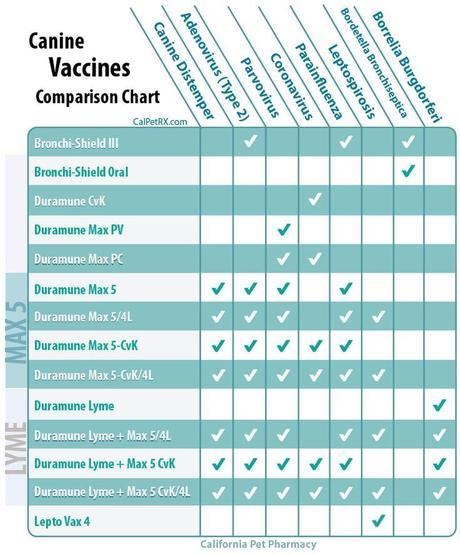
There’s plenty of controversy and uncertainty regarding canine vaccinations, but don’t consider it an option in the care of your dog. With vaccines, it’s all about protection. You never want to be the one who brought parvovirus to the party. And in this mobile society, you want to help your do avoid certain regional medical dog maladies.
Check out Reasons for Dog Vaccination
Certain vaccinations are mandatory, and they protect your canine pal against many infectious diseases. Just as kids need certain vaccinations to be allowed into schools, dogs need them to get into boarding facilities, to stay at a hospital veterinary clinic, and to cross border or get on a plane. In short, vaccines are designed to keep your dog healthy in all types of social settings.
Topping the list is the rabies vaccination, mainly required as a public health measure. The vaccine is usually given at 12 weeks of age, followed by a booster one year later and then once every one to three years, depending on where you live and the regional risk of infection. It protects your dog against this viral disease that attacks the nervous system and is often spread by saliva, usually from animal bites.
It’s important to realize that rabies vaccination, while important for dogs, is actually mandated for human protection. Vaccinated dogs and cats serve as a useful buffer between people and rabies in other species. Thus, in countries that regularly vaccinate dogs, such as United States and Canada, most rabies cases are seen in wildlife and livestock. In Mexico, where vaccination of dogs and cats isn’t a routine thing, dogs are the most common carriers of rabies. Keeping your dog vaccinated is the best thing you do to keep yourself protected from rabies.

Canine Vaccines Comparison Chart *
Many veterinarians recommend that you vaccinate your dog against coronavirus and parainfluenza. Coronavirus causes all the same clinical signs and symptoms of parvovirus, but they are usually less severe. Parainfluenza is one of the vital causes of canine cough, an extremely contagious respiratory disease of dogs that is frequently complicated by bacterial infections. Depending on what part of the country you live in or where you might be vacationing with your dog, Lyme disease and leptospirosis vaccines may also be needed.
If you’re going to board your dog or keep her in close confines with other dogs, it’s a good idea to have your dog vaccinated for canine cough with a Bordetella vaccination, in addition to the parainfluenza inoculation. As aforementioned, canine cough is a contagious respiratory infection characterized by a hacking cough that can persist for weeks. Even though the vaccine – which is squirted up your dog’s nose – doesn’t guarantee that your dog won’t pick up a version of canine cough, it offers some preventive protection.
Discuss with your veterinarian the vaccination schedule best suited for your dog’s needs in your local area. Just realize that growing puppies must get a series of vaccinations between the ages of six weeks and four months. After that, all dogs typically should get booster vaccinations at one year of age and then regularly thereafter.
Three More “Must” Vaccines Protect Dogs Against
- Parvovirus – a viral disease that causes severe vomiting, bloody diarrhea, and dehydration
- Distemper – a contagious viral disease that causes fever, appetite loss, pneumonia, and, in severe cases, encephalitis, convulsive seizures, paralysis, and even death
- Hepatitis – an infectious disease – known medically as adenovirus – that causes stomach pain, vomiting or diarrhea, liver swelling, and inflammation of the eyes
* image source

